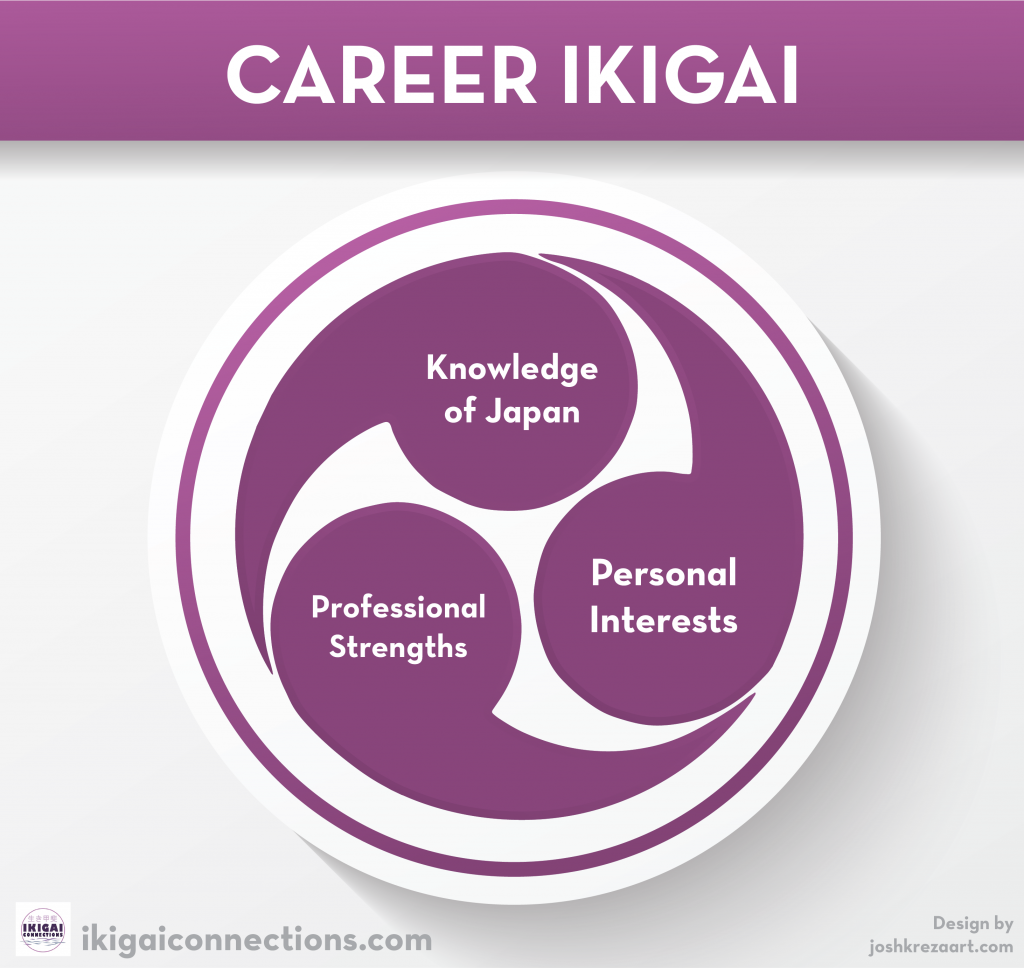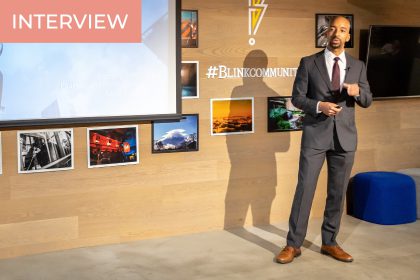The Japanese concept of ikigai can be defined as one’s “reason for living” or “purpose in life.” Living in accordance to your ikigai results in a sense of fulfillment. Kasia, founder of Ikigai Connections, has taken this concept to heart and built a business that helps people all over the world live up to their full potential.
Through Ikigai Connections, Kasia matches ambitious job seekers with Japanese companies that are in need of their talent. Read on to learn how Kasia discovered her own ikigai and pick up some tips on language learning, getting your first job at a Japanese company, and much more.
An International Journey of Discovery
I studied some Japanese in high school, and my teachers sent me to Japan. I didn’t really have a choice. However, once I got there, my mind was blown.
What is your origin story and connection to Japan?
I’m happy to be a Polish American. My parents left Poland to live in America, and I was raised with both Polish and American cultures. I think that’s what helped me be open to other societies and cultures.
I studied some Japanese in high school, and my teachers sent me to Japan. I didn’t really have a choice. However, once I got there, my mind was blown. At age 17, my life had changed. I came back home to Michigan as a different person and decided to help create a new major for Japanese Studies at Boston University.
In my junior year, I went to Kyoto. This experience was especially amazing and beautiful, and this inspired me to apply for the Monbukagakusho [MEXT] scholarship. I entered the program after graduation and headed to Tokyo. They placed me in a six-month language program and then a one-year program at Ochanomizu University. I loved the experience so much, and I was able to extend my stay for two more years.
After that, I found a job in the concert promotion industry. Then, I started to look for translation and interpretation opportunities. Following that path meant that I had to leave Japan and go to California to attend the Middlebury Institute of International Studies at Monterey (MIIS). However, during the summer before that, I decided to go to Poland to do a short language program. While I was there, I ended up meeting some Japanese diplomats and they convinced me to stay in Poland, so I had to defer MIIS. I worked in the electronics industry in Poland for a year, and I did some freelance interpreting and translating in Poland and Italy for another year. Unfortunately, my father became ill, so I came back home to Michigan where I met my husband and found a job at the headquarters of a Japanese company that happened to be near my house.
I worked there for five and a half years, and that’s where the idea behind my company, Ikigai Connections, originated. I was using my Japanese at work and I started managing other Americans who were speaking Japanese. This is what got me thinking about creating a business around helping non-Japanese people who love Japan build their careers.
I was at dinner with a friend and she suggested that I create a blog and share my message with the world.
What made you so passionate about helping fans of Japan around the world? In other words, can you tell us more about how your work aligns with your life?
Since around 2003, I’ve been talking about my dream to use my Japanese language ability in a Japanese work environment. I actually ended up doing that in various countries. And all of this time I had been thinking about it and convincing people—convincing employers during interviews and convincing managers to hire local talent. I was constantly talking about this, and I kept waiting for someone to create some kind of business around this message. However, no matter how much I talked, no one created this business. Finally, I was at dinner with a friend and she suggested that I create a blog and share my message with the world. I thought to myself, “Me and IT stuff? Never.” But eventually, I gave in and started a blog, very slowly, just to share my message.
Every single thing I’ve done since then has been all about me being open to trying new things—to ask what else I can do to take that next step. Even though I’m kind of a perfectionist, I was very much into the idea of experimenting and trying because who knows what could happen. In the beginning I didn’t really think this could become a business. But as my message got out into the world, more and more people started reaching out to me, and then I realized that I wasn’t the only one who believed in this message. The people who responded really needed help and advice. Providing that came easy to me, and that’s when I thought that I found something awesome.
Learn a New Language by Doing What You Love
If you do want to speak Japanese, your potential for great friendships and business success skyrockets.
In addition to your entrepreneurial story, one of the reasons that I wanted to conduct this interview was to learn more about how you learn languages, especially considering that you are trilingual. What, specifically, are your strategies for language mastery?
Let me preface this by saying that I don’t believe that knowing a language is necessary in order to appreciate a new culture. This is because a lot of people ask me how much Japanese they need to go to Japan. I try to calm people down by telling them to achieve the level that you’re interested in. Just be open-minded and willing to communicate. I know so many people in Japan who have lived there for decades, if not more, knowing very little of the language. However, because they have open minds and open hearts, they were able to make so many friends. Learning the local language is not a requirement for having a great relationship with people from a different country.
That being said, if you do want to speak Japanese, your potential for great friendships and business success skyrockets. So, I recommend finding at least one thing that you enjoy doing and focus on that. For example, let’s say you’re only into reading and writing. You can read books and blogs while participating in online communities to share what you are reading and writing. If you want to go crazy, you could even enter a translation contest, giving yourself a thrill as you test your skills to see if you are able to communicate nuances between languages.
If you’re focused on speaking and listening, you can find conversation partners, enjoy movies, and watch YouTube videos. The beauty of movies and video content these days is that you can see subtitles in multiple languages. You can compare them and learn how they are translated. Additionally, when you watch a movie with subtitles, you’re engaging in listening and reading comprehension simultaneously.
As for me, I did three things to improve my Japanese. First, I watched dramas on television. Second, I rented music CDs and listened to them while reading the song lyrics. I took it to the next level with the third habit: going out with my friends to sing karaoke. I really believed that this accelerated my language skills.
The other language that I speak is Polish. I’ve never formally studied the language. I just went to a Polish school on Friday evenings when I was a kid. But, I still enjoyed talking with people. For me, talking and conversing with others, knowing that I’m not perfect at it, but being curious and open minded is critical. It was also important to realize that I wasn’t being judged for my language ability but, instead, people appreciated my attempts to converse.
Japan and the Job Market

There are two fundamental things that job seekers must do. One is networking and the other is online research.
What is your advice for international job seekers who want to work for Japanese companies, either in their home countries or here in Japan?
There are two fundamental things that job seekers must do. One is networking and the other is online research. You can do those things together or separately. Let’s start with networking. Networking expands your world exponentially. Right now we can’t really go out and network, so go online instead. There are so many resources online. For example, you and I both are fans of LinkedIn—that’s how we first connected. I think all social media is great, but if you’re making a career-focused decision, go to LinkedIn. I realize it’s not so popular in Japan but the people in Japan who do use it are likely the kind of people you want to connect with anyway.
So, if you’re new to LinkedIn, create a profile and start looking for interesting people. Follow them, read what they post, and make thoughtful comments on their content. Eventually, people will start noticing you. Let people know that you are looking for a job. No one can read minds, so you’ll have to be a little obvious. People want to help you and can connect you to other people who are looking to hire someone like you.
Along the way, you need to be doing the second thing that I mentioned: online research. This is a constant process. Sign up for newsletters. For example, I’m signed up with every Japan-organization-related newsletter here in the U.S. Whenever one of those newsletters reaches my inbox, I learn about new networking events and opportunities. I hear about organizations that I never knew existed that are offering grants to go to Japan. I see local companies working on things that I want to get involved with. You just have to put yourself out there and read about what’s going on.
What about the other side of your business? What advice do you have for Japanese business owners and hiring managers who want to attract foreign talent?
This is near and dear to my heart. I’ve been trying, passionately, to convince Japanese employers to consider people like us. Take, for example, a Japanese hiring manager who is considering a Japanese-speaking foreign applicant. In this situation, I often hear comments such as “They don’t understand our culture” or “It would be too difficult—they’d struggle and we’d struggle.”
I encourage hiring managers who are thinking that way to look at the applicant as someone who is interested in their company, loves Japan, and wants to contribute. They are doing more than just trying to get a job to survive. They have a special kind of motivation. Consider their expertise, attitude, and willingness to work. Also, think about the amazing benefits they can bring to you—there may be more than you thought.
If this is your first time considering a foreign worker, I say give it a try. You could always start with something like an internship. But, be sure to give your new hire something that allows them to flourish—not making photocopies or fetching things. Provide an experience that allows them to prove to you how beneficial they can be to your company.
This leads me to my next question. It’s not fair, but it’s no secret that foreign workers are often seen as temporary—that we’re not going to be working for a particular company or staying in the country for the long run. What would you say to Japanese hiring managers that hold those beliefs?
If this is your first time considering a foreign worker, I say give it a try.
Actually, we see this with Japanese companies here in the U.S. as well. Local employees are seen as those who don’t understand lifetime employment, switching jobs every three to five years. Hiring managers wonder why they should bother training someone if they aren’t going to stay with the company for a long time.
But, look at it this way. If you were an employer, and you wanted to instill ideas that support kaizen [continuous improvement] and compete globally, then you need to have some non-Japanese component in your company. You need to do something a little different. Accept a breath of fresh air in your company, even if it’s only for a brief amount of time. And who knows how long it will be? Making assumptions doesn’t serve either side well. Instead of worrying if someone is going to stay with your company for only three years, think of the benefits that you wouldn’t have received otherwise. And, maybe, if you provide that employee with great projects and responsibility, they may stay with you for longer than you thought. Maybe I’m too optimistic, but I believe that even something like a three-month internship can be beneficial to both parties.
Nothing Is Ever Impossible
No matter how crazy your goal may seem, realize that it’s been done before.

If you could distill all your advice down to one message, what is the most important thing that you could say to young professionals who are dreaming of working for a Japanese company at home or abroad?
I often say that nothing is ever impossible. It kind of sounds like a typical motivational quote that shows up on t-shirts, but it’s important. No matter how crazy your goal may seem, realize that it’s been done before. Look for those stories. If it hasn’t been done before, who’s to say that you can’t be the first to do it? Everything that humankind has achieved is because of people pushing boundaries and doing what others thought was impossible. Remember that typical things that we take for granted every day, such as electricity, were once considered as crazy ideas. I can’t stand it when people try to bring others down by saying what can’t be done. I’m going to counteract that by saying you can do anything that you want—I don’t care where you live or where you’re from. We’ve seen people overcome awful situations and still come out on top.
If you can apply that ability to ganbare [persevere] to your career dream, then nothing should get in your way. And, if something does happen to get in your way, those are just stepping stones that you need to go around, go over, or break through.




